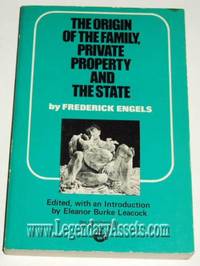
In the text, Engels responds to many of the most groundbreaking anthropological studies of the day and goes on to explain the material basis of the oppression of women and the state, demonstrating that they are not timeless, eternal phenomena, but rather products of history that arose along with the division of society into classes, and will cease to exist with the overthrow of private property. On the basis of these notes, Morgan’s work and further extensive research, Engels would go onto produce The Origin of the Family, Private Property and the State: a true masterpiece of historical materialism and one of the greatest works of Marxist theory ever produced. In the course of this work he discovered Marx’s notes on Ancient Society, by the American anthropologist, Lewis Henry Morgan. The claims Engels raised are stimulating discourses that heed on what might be best to achieve absolute gender equality and fully countermand the existing oppression, exploitation, and discrimination between social classes.We present here a reading guide to The Origins of the Family, Private Property, and the State, which can help comrades digest the key ideas from this classic Marxist text by Friedrich Engels.Īfter the death of Karl Marx in 1883, his close friend and collaborator, Friedrich Engels, took up the colossal task of preparing what would become volumes 2 and 3 of Capital using Marx’s manuscripts. The book is evidently essential in comprehending communist doctrines where this capitalist State would vanish along with classes and private property. The State, which was anticipated to be beneficial in governing social needs, paved more ways for various faces of exploitation. There are some social conditions that cannot be avoided, and as a result, society must create new solutions or adjust those that already exist to accommodate these inescapable limitations. It demonstrated the extent to which persistent social and economic changes affected social class norms. Be that as it may, the perspective it provides is still informative in deeply understanding why and how we have come into this condition of society today.

On the other note, as a historical materialist, Engels has laid information that is beneficial to his arguments despite hindrances of limited knowledge and resources during his time of writing. As he makes strong claims, he is not that successful enough in backing them up with significant data as some concepts were discussed in a reductionist way of thinking.

The Origin of the Family, Private Property, and the State, written by German socialist philosopher Friedrich Engels, is simply out of date in terms of the standards of the most recent anthropological facts and methodology today.


 0 kommentar(er)
0 kommentar(er)
